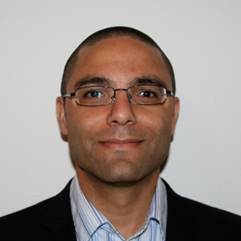It is 3:45pm, and I am running behind. Patients are gathering in the clinic waiting room, while I pull out my hair in frustration as I wait for a medical record department to fax a copy of a patient's report that is not yet in my local EMR.
This scenario still plays itself out over and over again in countless physicians' offices across the country. Waiting.... For a fax. I am reminded of the humorous tweet attributed to Matthew Hankins (@mc_hankins):
'Could you fax over a copy?'
- 'No, I can't fax because of where I live'
'Where do you live?'
- 'The 21st century'
All kidding aside, the seamless, timely sharing of medical information electronically between health care providers continues to be a significant challenge.
And while it is easy to despair that the panacea of true interoperability is not in sight, we should reflect on how far we have come in a short time, in an industry (healthcare) that is relatively slow to embrace change.
Thanks in part to the investments of Infoway and its partner organizations, the percentage of Canadian family physicians reporting EMR use increased from 16% in 2004, for example, to 77% in 2014, a phenomenal change in a decade1. In the same period, significant progress was made with provincial partners in implementing core components of provincial EHRs2 .
An increasing amount of essential patient data is now available to clinicians electronically. In many regions of the country, clinicians are reaching a tipping point in terms of the useful data they can access at the point of care. Netcare in Alberta provides one provincial success story, while in South-Western Ontario, Clinical Connect is a regional example of successful local information exchange.
Within the past year, I have been able to access patients' lab results through my EMR's connection to OLIS (the Ontario Lab Information System) – this small miracle has allowed me to track down missing patient lab data with a few mouse clicks. The tool is not perfect, but it is certainly an improvement on the pre-existing situation.
However, this progress does not diminish the frustrations of patients and clinicians who are still struggling with siloed electronic medical record systems that often do not communicate – doctors are clearly still pulling out their hair. The hope is that with strategies such Infoway's Clinical Interoperability Action Plan, supported by a broad array of partners, we can continue to move forward in the right direction.
We must ensure not only that clinicians can access and exchange digital health information in a timely, seamless manner with each other, but that this data is available to patients and their families when they need it the most.
What do you think? I would be interested to hear feedback and comments from across the country.

About Rashaad Bhyat
Dr. Rashaad Bhyat is a Clinical Leader in the Clinical Adoption group at Canada Health Infoway. He is a family physician with a special interest in Digital Health. He currently practices in an EMR-enabled family practice in the Greater Toronto Area.
- National Physician Survey data (http://nationalphysiciansurvey.ca/)

